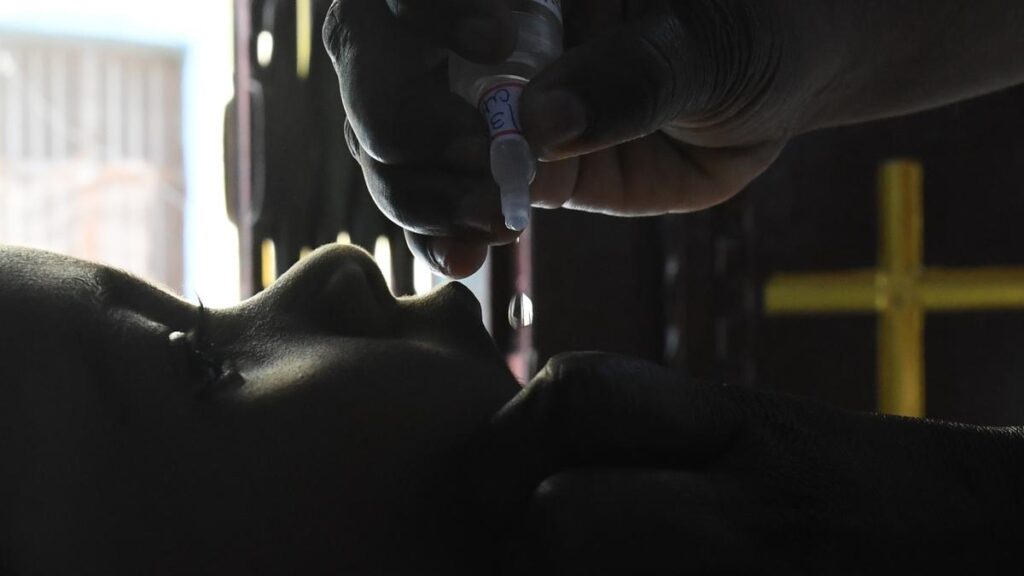The government has proposed to wind down, in phases, the World Health Organization (WHO)-established National Polio Surveillance Network (NPSN), currently a countrywide network of over 200 units. Experts in the field have commented that the move would be premature and ill-advised at this stage, with India’s neighbouring countries still harbouring cases of polio.
Staff at the NPSN centres have received a communication from the WHO’s representative in India, Roderico H. Ofrin, advising them of an upcoming transition initiated by the government. The transition involves a gradual drawdown of the NPSN units each year — from approximately 280 units in 2024-25 down to 190 in 2025-26, and further to 140 in 2026-27. This is also linked with a corresponding reduction in financial support from the government, according to the communique.
The process of transition will begin in June.
“We are not disbanding teams overnight or winding down the network haphazardly; rather, specific units will phase out at set intervals as government systems ramp up and absorb these functions,” Dr. Ofrin said. This will help us ensure that, at any given time, critical surveillance activities continue with minimal or no gaps, he said.
While he assured the staff of the NPSN that this would help retain critical surveillance activities, at some point, polio surveillance would be subsumed within the Integrated Diseases Surveillance Programme.
But the proposed winding down of a key unit, at a time when global resurgence of polio has been reported, has not gone down well, with either staffers or public health experts.
India was declared polio-free in 2014, after three years of no case caused by wild polio virus transmission. The gains came after a full-frontal attack launched on polio, through years of coordinated work and oral polio immunisation campaigns, with a number of organisations collaborating.
Jacob John, prominent virologist and vaccine expert, who has been actively involved in polio eradication efforts, including as a member on the National Technical Advisory Group on Immunisation, said he was “horrified” by the move. “The world has lots of polio still. It is way too early to upset our current ‘steady state’,” he added.
He pointed out that Afghanistan and Pakistan continued to have polio cases, and that it is too close for comfort, also pointing to the danger of vaccine-derived polio virus. “For every type 1 wild virus polio in Pakistan, there are about 10-12 circulating vaccine-derived poliovirus polio cases, mostly type 2, globally. After April 2016, we have not immunised children against type 2. In case vaccine derived polio virus is imported into India, widespread transmission and polio cases by the dozen are expected,” Dr. John said.
A long-time campaigner for injectable polio vaccines (IPVs), Dr. John suggests that India should first replace oral polio vaccine (OPV) with IPV. After one year, all OPV can be withdrawn. Then, one year later, we can look at dismounting the watch. “If surveillance is diluted now, we become sitting ducks for the resurgence of polio due to circulating VDPV, type 2 most likely, and type 1 less likely,” Dr. John said.
Dr. Ofrin’s letter also touches upon job security for existing staff, but the polio surveillance medical officers in the country under the Special Services Agreement, said it’s not at all reassuring. “Each centre has at least four employees. Imagine the number of people who won’t have a job,” one doctor said, speaking on condition of anonymity.
He also said that, since 2014, the NPSN had been functioning as a unit of the Central government, which expanded the role of the staff to conduct surveillance for measles and rubella, DPT (diphtheria, pertussis or whooping cough, and tetanus), child vaccination, and training the health workforce every time a new vaccine was introduced. He pointed out that there seemed to be no rationale in shutting down these particular centres. “Vaccine-preventable diseases are a critical area; the country’s progress should not be compromised at this stage,” he said.
Published – June 03, 2025 11:41 pm IST
Source:https://www.thehindu.com/sci-tech/health/government-plans-to-wind-down-national-polio-surveillance-network-centres-in-india/article69653654.ece

